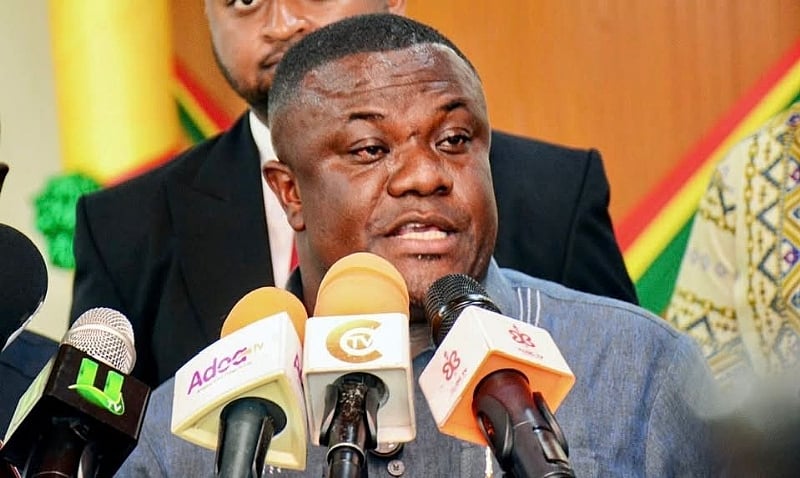The arrest and subsequent detention of Bernard Antwi Bosiako, the Ashanti Regional Chairman of the New Patriotic Party (NPP), widely recognized as Chairman Wontumi, has ignited a firestorm of controversy within Ghana’s political landscape. Collins Adomako-Mensah, the Member of Parliament for Afigya Kwabre North, has vehemently denounced the actions of the Economic and Organised Crime Office (EOCO), characterizing the arrest as a blatant abuse of political power and the imposed GHS50 million bail condition as exorbitant and unjust for a “law-abiding citizen.” This incident has further exacerbated tensions between the ruling party and the opposition, with the Minority caucus in Parliament staging protests and boycotting parliamentary proceedings in solidarity with Chairman Wontumi.
Adomako-Mensah’s criticisms center on the perceived procedural irregularities and the seeming disregard for Chairman Wontumi’s cooperation with law enforcement. He highlighted the fact that Wontumi, upon receiving a request from the Criminal Investigations Department (CID), willingly traveled from Kumasi to Accra for questioning. He complied with all requests, demonstrating his respect for the legal process and underscoring his status as a well-known public figure with no apparent intention of evading the authorities. Following his cooperation with the CID, however, Wontumi was unexpectedly apprehended by EOCO officers, a move that Adomako-Mensah contends was unwarranted and heavy-handed.
The subsequent detention of Chairman Wontumi for 48 hours without access to legal counsel or party leaders has further fueled concerns about due process violations. Adomako-Mensah emphasized the difficulty Wontumi faced in even communicating with his lawyers and party officials, raising questions about the transparency and fairness of the process. This lack of access, coupled with reports of Wontumi’s ill health, makes the imposition of the GHS50 million bail even more unreasonable, according to the MP. He argues that such an exorbitant condition effectively denies Wontumi his right to bail and represents a clear abuse of power. The MP insists that while they do not oppose legitimate investigations, due process must be strictly adhered to.
The Minority caucus in Parliament has taken a strong stance in support of Chairman Wontumi, staging protests at the EOCO headquarters and boycotting parliamentary proceedings. Their actions demonstrate the gravity of the situation and the level of dissatisfaction with the handling of the case. They view the arrest and detention as politically motivated and a deliberate attempt to intimidate and silence a prominent figure within the opposition party. The boycott of parliamentary proceedings further signifies their commitment to pressing for Wontumi’s release and holding the responsible authorities accountable for what they see as an abuse of power.
The case of Chairman Wontumi has become a focal point of political contention in Ghana, highlighting concerns about the use of state institutions for political ends. Critics argue that the seemingly arbitrary arrest, the prolonged detention without proper access to legal counsel, and the imposition of an excessive bail amount all point to a potential abuse of power. They fear that such actions could erode public trust in law enforcement agencies and undermine the principles of justice and fairness.
The ongoing protests and the parliamentary boycott underscore the deepening political divide in Ghana and the increasing tension between the ruling party and the opposition. The situation surrounding Chairman Wontumi’s arrest and detention serves as a microcosm of the broader challenges facing Ghana’s democracy, particularly the need for greater transparency and accountability within state institutions. The outcome of this case will likely have significant repercussions for the political landscape and could further shape the dynamics between the ruling party and the opposition in the lead-up to future elections.


